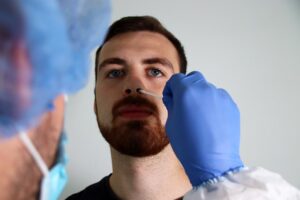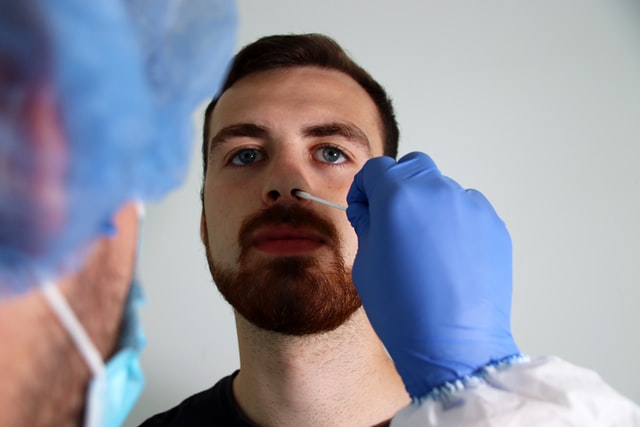Ontario, the virus does not give up and the restrictions will remain

TORONTO – Fewer tampons, fewer cases. The drop in new infections recorded today, 887 against 1,184 on Sunday, bodes well for only a few seconds: the time to look at the number of tests performed, that is 25,981 against 31,735 on Sunday. The positivity rate, in fact, rises from 3.2% to 3.5% in twenty-four hours and the moving average of daily cases calculated over seven days is now equal to 940, an increase both compared to today (926) and compared to as of a week ago (783). Three deaths were also recorded today, bringing the total number of deaths since the start of the pandemic in Ontario to 10,027.
Of the new infections reported on Monday, 373 cases involve unvaccinated people, 24 partially vaccinated and 64 with an unknown vaccination status. The remaining 426 infections concern fully vaccinated people. Health experts point out noted that the number of infections in fully vaccinated individuals will increase as more people receive the two doses, because the “audience” of the immunized will get closer and closer to the totality of the population and why, at the same time, vaccination helps reduce the risk of serious symptoms related and hospitalization, but, evidently, not quite the contraction of the virus, especially now that the Omicron variant is circulating: it is much more contagious and has already been recorded in all regions of the Greater Toronto Area.
Regarding the territorial distribution of today’s cases, 139 were detected in Toronto, 60 in the Peel region, 60 in the York region, 30 in Halton and 37 in the Durham region. Outside of the GTA, regions that have reported more than 30 new infections include Kingston, Frontenac, Lennox and Addington (41), Middlesex-London (34), Ottawa (55), Waterloo (33), Simcoe-Muskoka (73) ), Sudbury (39) and Windsor-Essex (41). All other regions reported fewer than 30 new cases.
According to the province’s epidemiological report, of the 887 new infections reported today, 203 cases were identified in children under the age of 12, 66 cases in young people between the ages of 12 and 19, and a further 258 cases in people aged between 20 and 39 years. Active (and known) cases in Ontario are now 8,439.
Meanwhile, Ontario Deputy Prime Minister and Minister of Health Christine Elliott, in light of the rapid spread of the Omicron variant, announced today that the easing of restrictions (primarily, those concerning the vaccination passport) scheduled for January will come probably postponed. Elliott stated that “if this Omicron variant is circulating widely and if it is as virulent as it has been in other jurisdictions, we will have to pay attention. We anticipate that we will need the restrictions for at least a few more months … we’ll see, once we know. more about the Omicron variant”.
Under the current emergency framework developed by the Ford government prior to the discovery of the Omicron variant, the mandatory vaccination passport to enter restaurants, bars and fitness centers would have been lifted as early as mid-January 2022 and, from the end of March of 2022, the mandatory nature of masks indoors would also fall. But this will almost certainly not happen.
The leader of the opposition, Andrea Horwath of the NDP, urges the government to “show strong leadership” and to stop “pandering to anti-vaccinists” with what she called “a premature and planned removal of the vaccination passport”.
Photo by Maskmedicare Shop on Unsplash



